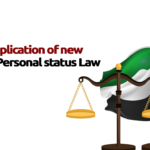
This post has become imminent as death is an inevitable occurrence, one has to know and prepare as to what will happen to their pension after their demise. In this post, we will be explaining to you what happens to your pension after death and what makes you eligible to inherit the pension of your spouse.
Defined Benefit Pension
This type of pension scheme applies to you or your spouse if you worked in the private sector. With this kind of pension scheme, you are likely to have a new state pension or an additional state pension. One earns retirement income from this pension scheme. The calculation is done according to your monthly salary and the amount of time you worked in a company.
Defined Contribution Scheme
This scheme allows you to build up a pension pit that at the end will pay you a retirement income that is akin to a retirement annuity. This is based on how much you and your employer are able to contribute and how much it grows.
What happens to your Pension?
A pension administrator is normally in charge of delegating your pension funds after your death. Generally, your civil partner or spouse and other nominated defendants if any receive your pension funds but it is subject to the specific profiles in your pension scheme. As a spouse who may be a beneficiary of your partner’s pension, you will need to pay income tax on the contributions they receive and it is immaterial if it is paid out from a private pension fund or workplace pension scheme.
Who can be a Beneficiary
- The spouse of a deceased can inherit their extra state pension as well as their new state pension if the deceased partner was a man born before April 6, 1951, or a woman born before April 6, 1953.
- Children under the age of 23 who are studying full-time.
- Children who are mentally or physically impaired regardless of their age.
- Anyone who was financially dependent on the deceased.
It is also crucial for you to know that every pension scheme has an independent regulation regarding private pensions, inheriting additional state pensions, personal pensions, and the distribution of a Lump sum payment.
What is a Lump Sum Payment and How is it Paid
A lump sum distribution is a one-time payment from a deceased pension administration to the beneficiary. The situation in which a lump-sum pension is paid out are;
- If the deceased was still an active member of his or her personal or basic state pension scheme when he or she dies, the beneficiary is entitled to receive a lump sum payout.
- If the deceased dies before the age of 75, the beneficiary will not be taxed on the income they obtained.
- It is also provided that a beneficiary should be paid a lump sum if the deceased dies during the pension guarantee period which is usually between 5-10years. The amount is corresponding to the amount of pension payment due to be paid between the deceased death and the end of the guarantee period and the income is also paid tax-feee on the condition that the deceased died before the age of 75 though might be subject to council tax.
How can the Beneficiary or Inheritor of the Pension be Determined
It is advised that before one reaches the state pension age, he should put into consideration certain things and make proper arrangements as to who will inherit his pension. This is because for you as a spouse to inherit your partner’s pension you must show proof of marriage between you and the deceased or civil partnership which will legally make you entitled to your spouse’s pension fund or pension pot.
The second way to inherit the pension is if you get nominated as a beneficiary. A form which is called an Expression of wish or Nomination form is normally available and will be filled out by the deceased. If this is not done, the deceased pension administrator has the final say over who receives the pension funds.
Conclusion
Based on the above, it is important to know that as a spouse, once your partner dies, he or she stops receiving a pension, and whoever the deceased nominates gets to receive the allocated portion of the pension fund. This is why we advise being proactive in order not to have your spouse’s pension paid to another person.
For more information about Family Law in the UK and all your business needs, advice, compliance, and legal requirements in the Middle East, Asia, and Africa please feel free to contact us for a free consultation. We are just a click away. We also assure you that we will tend to your requests.
We at eLegal consultants look forward to meeting you and are ready to journey with you to realize your dreams today.



